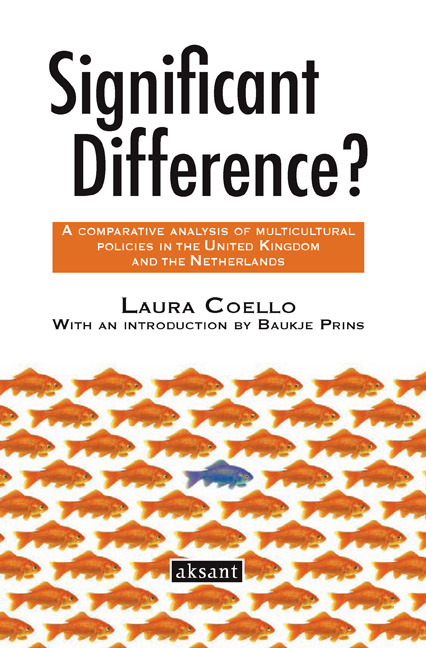4 - Conclusion: Did Multiculturalism fail?
Published online by Cambridge University Press: 20 January 2021
Summary
My conclusions are based on a review of two sets of policies implemented in relation to multiculturalism: anti-discrimination policies and policies that facilitate the participation of minorities in the labour market. For both sets of policies, the following questions are asked and answered: Why did the governments of the UK and the Netherlands choose multiculturalism? What were the aims and objectives they wanted to achieve by implementing multicultural policies? Based on these aims and objectives, did multiculturalism fail?
In short, the incremental, long-term policies implemented in the United Kingdom in relation to anti-discrimination and labour market participation seem to have reduced the level of prejudice against (some) minorities and enabled positive relations between groups in society. In addition, the policies made it possible for individuals with an ethnic minority background to participate in the labour market on an almost equal footing as their native counterparts. While the policies of the Netherlands have helped reduce (some) prejudices against (some) minorities, there seems to be no link or relation between these policies and the relations between groups in society. The short-lived labour market that targeted participation of minorities did not achieve comparable results in the employment rates of Dutch minorities compared with their native counterparts.
These conclusions might have been different if all or other implemented policies that give the ideology of multiculturalism concrete implementation in the UK and the Netherlands had been reviewed.
However, when assessing whether, based on the objectives on which it was adopted, multiculturalism failed in the United Kingdom, the tentative answer is that it did not. The commitment of British political elites has been consistent throughout the years in stressing positive relations amongst the different communities in society, resulting in a positive self-reflection of what it means to be British as well as a positive perception of minorities. This is reflected in an increasing participation of public and private organisations in diversity policies with resulting high employment rates for minorities, even when compared to the employment rates of the native population. This is a much better result than the one achieved in the Netherlands.
However, this does not mean that there are no diversity challenges in the UK. The Equalities Review of 2007 points out that, while much progress has been made, there are persistent (and sometimes new) prejudices that still require attention.
- Type
- Chapter
- Information
- Significant difference? A comparative analysis of multicultural policies in the United Kingdom and the Netherlands , pp. 47 - 50Publisher: Amsterdam University PressPrint publication year: 2010



